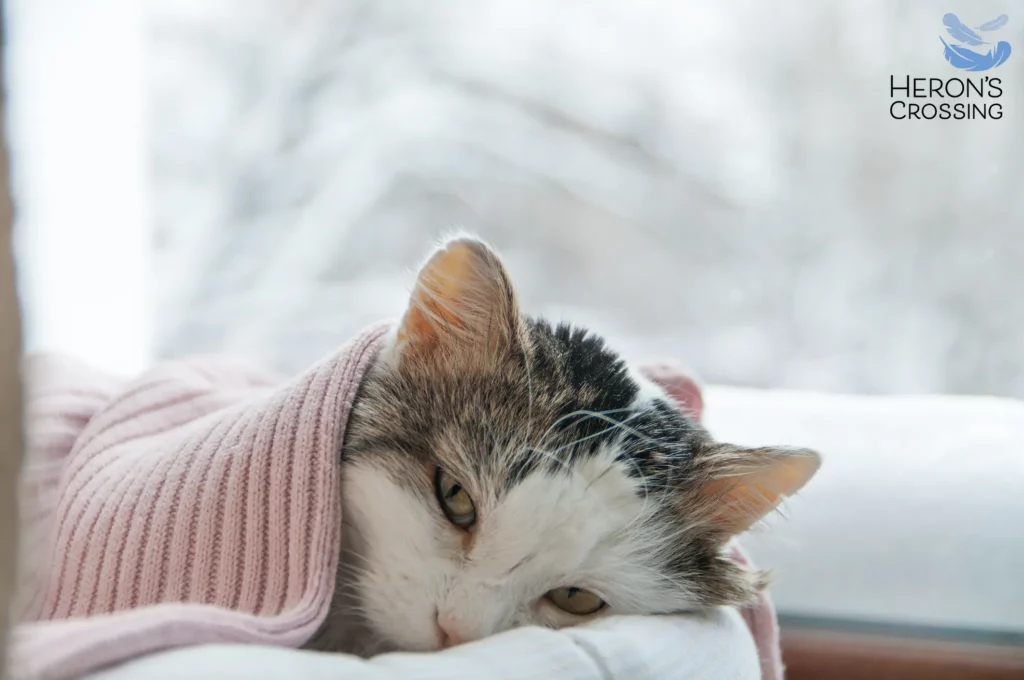Cats are typically loners, being territorial. But when they make a friend, it’s forever.
Your cat’s grief may appear as depression, disinterest, wanting to sleep a lot, or pacing in insomnia, possibly refusing food, howling or acting out in some way. Kitty may go into hiding for some alone time.
Give your cat time to come to terms with this painful loss. Put something belonging to his friend nearby so he can continue to smell his friend and be comforted.
However, don’t let your cat go more than a day without eating something. Cats’ health can deteriorate quickly. You may try to make his meal something special that will catch his interest.
If your cat wants to cling to you, give him lots of affection. Spend quiet time together. Cry together if you need to. Talk to him even while you are doing chores, so he won’t feel so lonely. Or turn on bird TV channels while you are gone, to give him company. Encourage him to talk back if he has become quiet. You might be surprised. Sometimes cats react loudly when encouraged.
You may want to run out and give another animal a new home to help fill the void in your lives, but your cat will not be ready to make friends – not just yet. If you try to force it, a new bond will not be established. So give yourselves time to do some healing first. It could take a few months.
Cats live in a much smaller world than dogs. You can’t take him for a ride to play at the cat park, but if you get a cat stroller for a neighborhood walk, or to take him in the backyard for a little while, the fresh air and a change of scenery will help to raise spirits.
Often your cat’s companion will show signs of age and illness prior to death, and you may see your cat staying close to your sick one, providing support. When their companion dies, if possible, let your cat have some time with the body, to understand what has happened. If not, kitty may wander through the house crying out and searching for the one who is missing.
If your cat continues to remain despondent, or goes more than 24 hours without eating, it is important to see a veterinarian, who can check for underlying causes, or provide medications and calming aids if needed.
Losing a loved one is devastating to animals as well as people. They need time and caring support to recover.
Heron’s Crossing provides end-of-life care for pets in the Metro Atlanta area. In-home appointments with compassionate vets are available. If you’d prefer a home-like setting away from your home, our Decatur office is also available by appointment.

